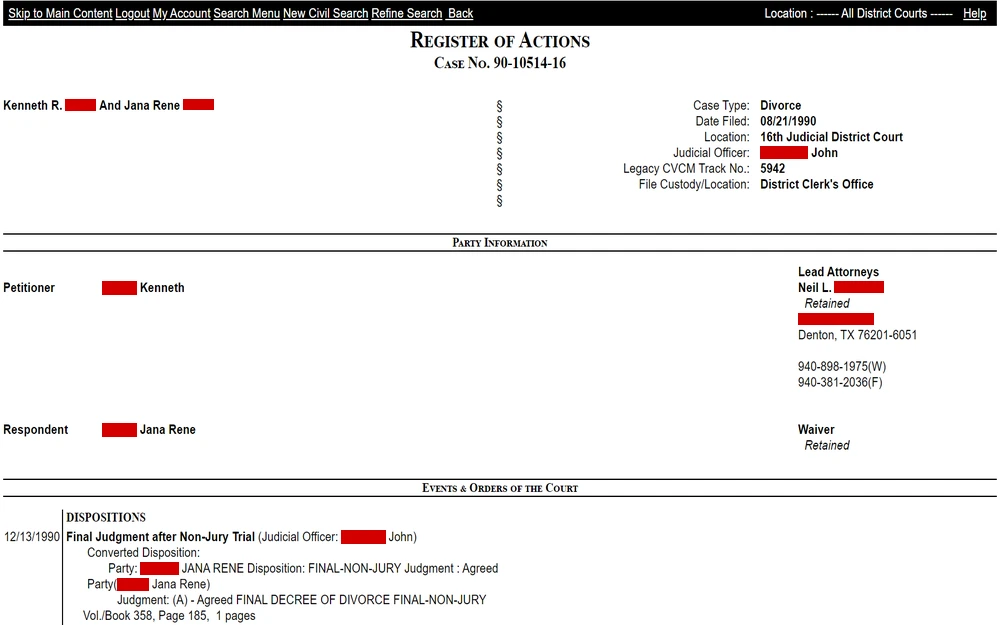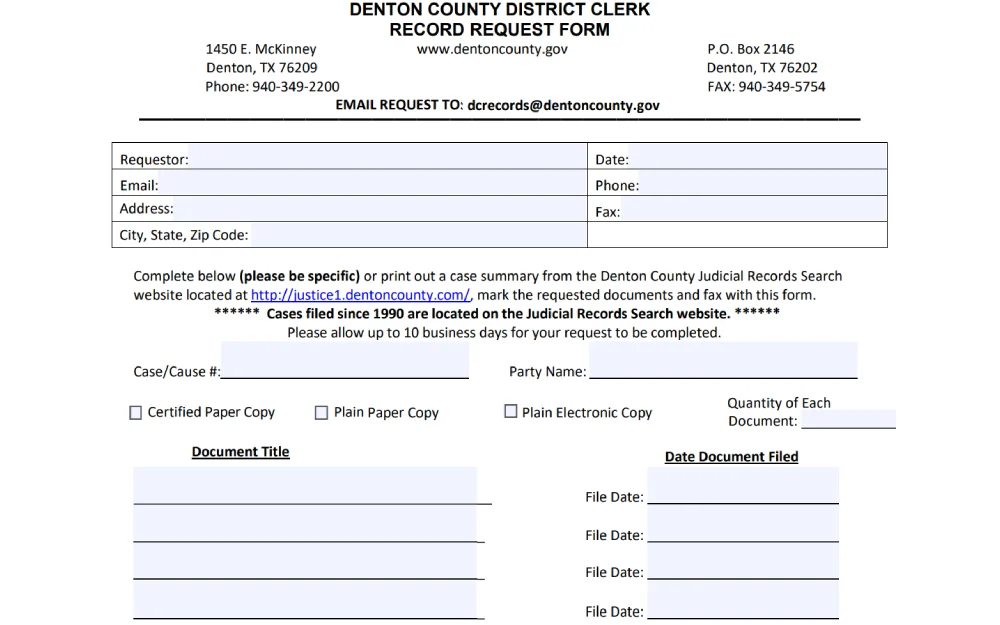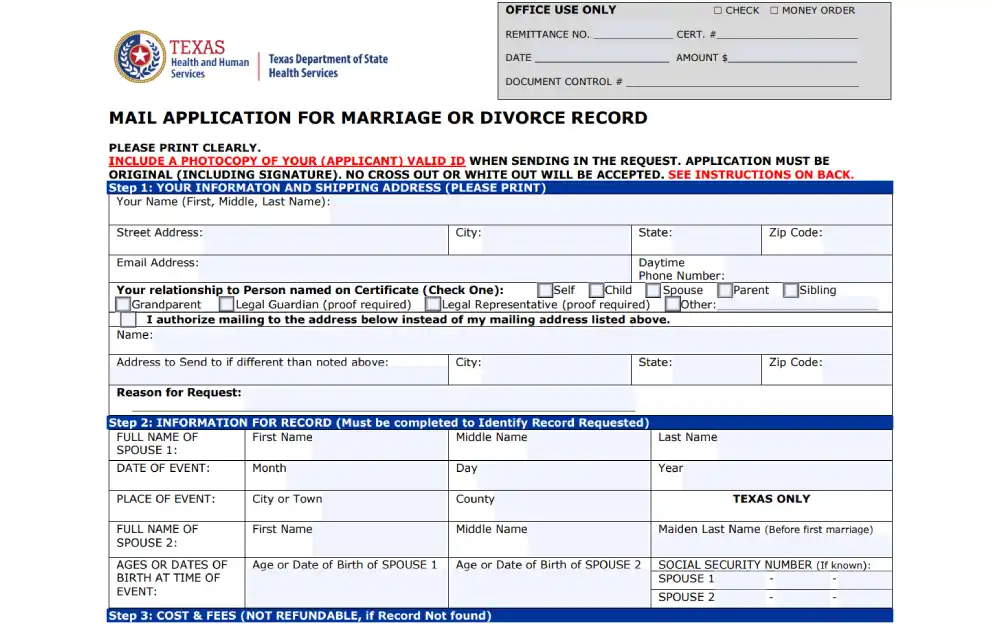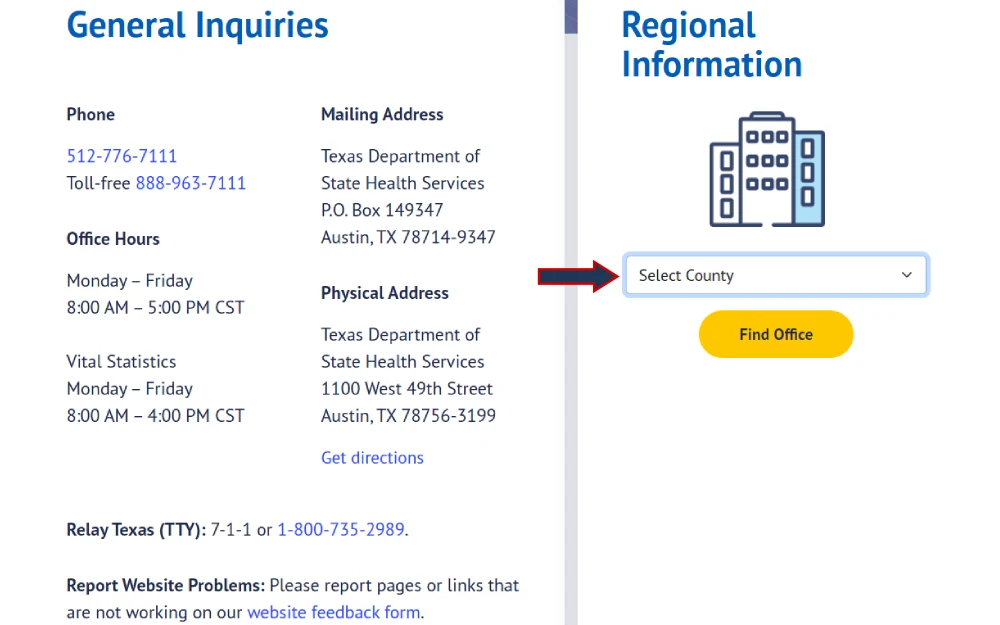Search Denton County divorce records for free using the options laid out in this resource.
These records are accessible to the public through the Texas Public Information Act, so you can look up divorce records to resolve a legal issue or merely out of curiosity about someone you know.
While access to these records is required by state law, there are no specific rules on how these records must be made available. Some government agencies provide access through an online search tool, while others allow in-person searches or by making a formal request.
This streamlined resource walks you through the process of accessing divorce records and clarifies nuances you need to be aware of when looking up divorce information in Denton County, Texas.
This resource was written by Attorney Robert Bailey Jr, who holds a Juris Doctorate from Widener University School of Law.
How To Track Down Divorce Records for Free in Denton County
If you want to track down public divorce records in Denton County, you can conduct a search with the District Clerk.1 The District Court is responsible for handling divorce cases, and the Clerk is the record’s custodian.
To conduct a free search of divorce records in Denton County, you can use the District Clerk’s Civil & Family Case Records Search Tool.2 This search tool has cases from 1990 to the present.
To use this search tool, you can find a divorce record in Denton County by entering the case number, party name, attorney, or the date filed. When conducting a name-based search, you can check the “Soundex’ box if you are unsure of the spelling. This option will provide search results that are phonetically similar to the name you entered.
To narrow down your search results, you can select a case status (all, open or closed) and a date range for when the divorce case was filed. You can then sort your results by any of these fields.
Once you get to the search results page, you can view all matching divorce records. The results page will provide you with the case number, caption (includes the party names), file date, location, judicial officer, type, and status. Since this is a civil and family case law search tool, you will want to look at the column labeled “type” to determine which are divorce cases.
Once you find the divorce record you are looking for, click on the case number to view the complete record. The complete online divorce record will contain the full names of both parties and the attorneys who represented them.

You can also view a chronological listing of all events and orders of the court from the date the petition for divorce was filed until the decree was issued. For the decree, the search tool will provide the volume, book and page number, which can assist you if you want to search for records in person. Lastly, you can view the financial information related to the filing and administration of the divorce case.
If you want to request a copy of a divorce record or a specific document, such as the decree, you can make a request with the Denton County District Clerk.3 They are the record custodian for all family law records.
To request a divorce document, you can prepare the Denton County District Clerk Record Request Form.4 To do so, you may have to first conduct an online search with their case search tool to obtain all necessary information. You will need to start by providing your name and contact information as the requester.

Next, you will have to provide the case number as well as the party’s names. You will then indicate if you want a certified, plain or electronic copy and the number of copies you need.
The last piece of substantive information you need is to indicate the document title (e.g., decree) and the filing date. All of this information can be obtained with the online case search tool. The District Clerk does not make any distinction, other than the fee, with regards to requesting a certified copy as opposed to an informational one.
A certified copy costs $5.00 plus $1.00 per page of the document. A plain paper copy is $1.00 per page, and an electronic copy is $1.00 for documents one to ten pages and a rate of $0.10 per page for documents eleven pages or greater. The Denton County District Court allows payment to be made by cash, money order, or credit card, although there is a 2.75% transaction fee for credit card payments.
The completed form can be mailed to the address below:
Denton County District Clerk
P.O. Box 2146
Denton, Texas 76202
Another option is to email the Record Request Form to [email protected]. Lastly, you can drop off the record request form off in person at the address below:
Denton County District Clerk
1450 East McKinney St.
Denton, Texas 76209
If you have any additional questions, you can view the Denton County District Clerk FAQ page.5 You can also call the Denton County District Clerk at 940-349-2200 or 972-434-8822. They are available for your inquiries any time on Monday through Friday from 8:00 AM to 4:30 PM.
Note: Another option in certain counties is to look for divorce records with local city government agencies. However, that option is not readily available in any of the major cities located in Denton County.
How To Use the Vital Statistics Section of the Texas Department of State Health Services To Find Divorce Information
You can also expand your search to access divorce information throughout the state. This may be helpful if you cannot find what you are looking for in Denton County or if you want to access divorce records for a person you know was divorced in Texas, but you are not sure of the specific county.
To access divorce information statewide, a citizen can submit a request to the Vital Statistics Section of the Texas Department of State Health Services.6 While they cannot provide you with a divorce certificate, they can provide you with verification that the dissolution of a marriage occurred in the state. The cost of a verification letter is $20.00 per copy.
Note: A divorce verification is not the equivalent of the actual decree of divorce issued by a judge.
One option for requesting a divorce verification letter is to submit a request online.7 You can also complete a PDF Application for Divorce Records.8

You will have to provide the name of both parties to the marriage and the date and location of the divorce. You must then provide your contact information and your relationship to the people listed on the record. That is because, for a verification letter, you have to be one of the following qualified individuals:
- Person listed on the record
- Parent
- Guardian
- Spouse
- Child
- Sibling
- Grandparent
- Legal representative
- A person with a court order or other proof of legal tangible interest
Completed applications can either be brought to any local office or mailed to the address below:9
Texas Vital Statistics
Department of State Health Services
P.O. Box 12040
Austin, Texas 78711

A citizen can also access some information through a divorce index. One option is a statewide index provided by the Vital Statistics Section.11 Their indexes, starting in 1968, contain divorce information as issued by the various county district clerks throughout the state. The index will contain the following information:
- File number
- Full name and age of both individuals
- Marriage date
- Number of children (only those under 18 at the time of divorce)
- Date of divorce
- County where the divorce decree was issued
If you have questions specific to accessing these indexes, you can send an email to [email protected]. For questions about verifications or indexes, you can check out the Texas Vital Statistics Marriage and Divorce FAQ page or contact their office at 888-963-7111.12 Their office hours are weekdays from 8:00 AM to 4:00 PM.
Common law marriage is authorized in Texas. That means a party can formalize their relationship if they meet certain statutory criteria.
If a relationship is recognized as a marriage, then, if desired, you are also required to formally end these relationships (sometimes referred to as common law divorce). These types of divorce records are also available.
Are Denton County Divorce Records Accessible to Everyone?
Access to divorce records is typically determined by state law. As a result, your access to divorce records in Denton County is determined by Texas law.
Generally, divorce records are considered public information in accordance with the Public Information Act.13 This does not mean that everything in a divorce record is considered available to the public.
For instance, information designated as sensitive can be restricted from being disclosed. Some examples of sensitive information include a person’s social security number, bank account information and details about minor children.
Divorce records can also be sealed if a party to the proceeding files a motion and it meets certain requirements. Essentially, the requestor must show that sealing the record will not have a negative impact, that the information shouldn’t be public, and there is no other alternative to protect this information.
It’s also important to understand that while divorce records are generally available, there are different types of documents that an individual may want to access. For instance, divorce papers can consist of any of the filings that were part of the case.
This may be the initial petition that was filed or a variety of motions and pleadings submitted as the case was still open. Divorce records will confirm that a party was divorced and include when it occurred and the location.
A decree is the document signed by the judge at the end of the matter and finalizes everything. The decree will contain information about how the marital assets are split up, spousal support payments and any requirements that result from the divorce. These records are also generally available to the public, although they can be restricted due to sensitive information or if a record is sealed.
There are both certified and non-certified (e.g., informational) divorce records. Both can be requested by the general public; however, there is usually a different cost.
The reason is that certified records can be used for official business reasons. Certain state agencies will restrict providing certified divorce documents as was discussed earlier in this article.
There are various third-party providers out there that can assist you if you need help finding either new or archived divorce records. They can be useful for tracking down hard-to-find records or those that may have occurred in a different location then you were aware of. Just be aware that unless these are approved by a government agency, the data they provide can only be used for informational purposes.
With the information provided in this article, you are now equipped with the resources necessary to search Denton County divorce records; you should know what records you can access and the best ways to find and request them.
References
1Denton County, Texas. (n.d.). Directory. Retrieved January 4, 2024, from <https://www.dentoncounty.gov/Directory.aspx>
2Denton County, Texas. (n.d.). Public access to court records. Retrieved January 4, 2024, from <https://justice1.dentoncounty.gov/PublicAccessDC/default.aspx>
3Denton County District Clerk. (n.d.). District Clerk. Retrieved January 4, 2024, from <https://www.dentoncounty.gov/230/District-Clerk>
4Denton County District Clerk. (n.d.). Records request form [PDF document]. Retrieved January 4, 2024, from <https://www.dentoncounty.gov/DocumentCenter/View/486/Records-Request-Form-PDF>
5Denton County, Texas. (n.d.). Frequently asked questions. Retrieved January 4, 2024, from <https://www.dentoncounty.gov/Faq.aspx?TID=19>
6Texas Department of State Health Services. (n.d.). Marriage & divorce records. Retrieved January 4, 2024, from <https://www.dshs.texas.gov/vital-statistics/marriage-divorce-records>
7Texas Online Vital Record Application System. (n.d.). Order divorce verification letter. Retrieved January 4, 2024, from <https://ovra.txapps.texas.gov/ovra/order-divorce-verification-letter>
8Texas Department of State Health Services. (2022, February). Marriage and divorce verification form [PDF document]. Retrieved January 4, 2024, from <https://www.dshs.texas.gov/sites/default/files/vs/doc/marr-div-verification-wedding.pdf>
9Texas Department of State Health Services. (n.d.). Order records locally. Retrieved January 4, 2024, from <https://www.dshs.texas.gov/vital-statistics/order-records-locally>
10Texas Department of State Health Services. (n.d.). Contact us. Retrieved January 4, 2024, from <https://www.dshs.texas.gov/contact-us>
11Texas Department of State Health Services. (n.d.). Marriage & divorce indexes. Retrieved January 4, 2024, from <https://www.dshs.texas.gov/vital-statistics/marriage-divorce-records/marriage-divorce-indexes>
12Texas Department of State Health Services. (n.d.). Marriage & Divorce FAQs. Retrieved January 4, 2024, from <https://www.dshs.texas.gov/vital-statistics/frequently-asked-questions/marriage-divorce-faqs>
13Texas Comptroller of Public Accounts. (n.d.). Public Information Act. Retrieved January 4, 2024, from <https://comptroller.texas.gov/about/policies/open-records/public-information-act.php>
